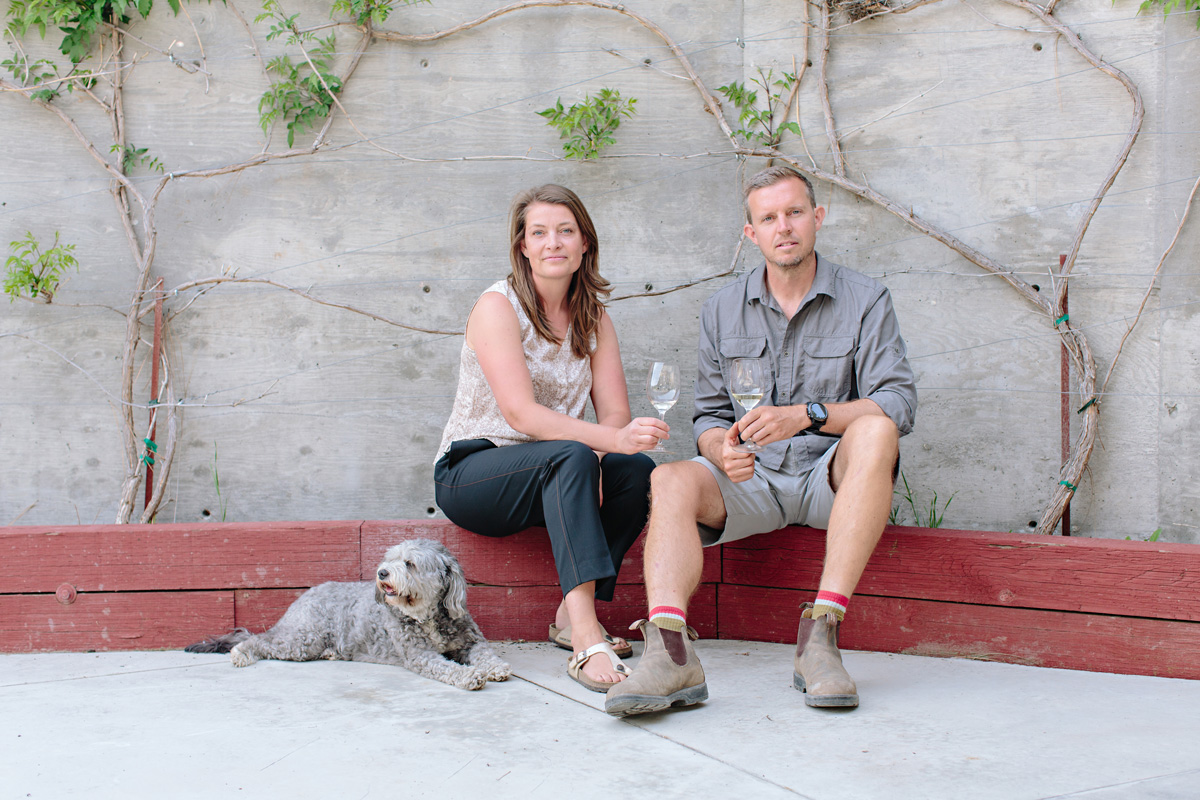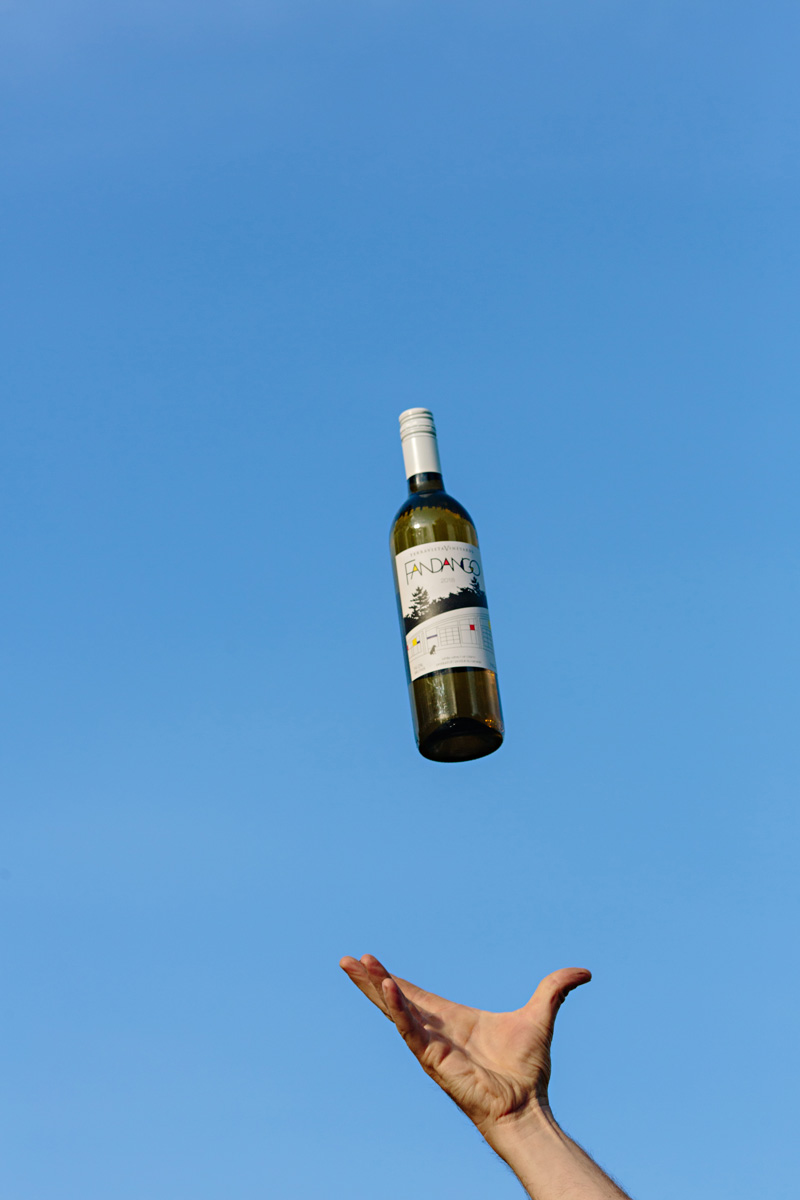
Wine Culture Magazine

Owners of Terravista Vineyards since 2019, Dallas and Eric Thor are guided by their love of the land and the Spanish varietals planted on it.
Jon Adrian photo
When Dallas and Eric Thor took over Terravista Vineyards in 2019, they vowed to embrace firmly the spirit of its founders. The Thors had come to know Bob and Senka Tennant and sought their mentorship—part of a plan over time to develop their own Naramata vineyard. They soon discovered their mentors were retiring for good. “We couldn’t pass up the opportunity to learn about and grow these unique varietals on the bench; what a pioneering idea to plant Albariño and Verdejo in our region,” says Eric Thor.
Quality, co-operation and love of the land guide all decisions at Terravista’s family-run winery. Historically, much of the grape supply was purchased from outside growers. “Bearing in mind that ‘wine is grown in the vineyard,’” says Eric, “it all starts with winter pruning in February, so it seemed necessary for us to ensure our grapes are grown in line with our holistic and organic philosophies.” The last two years, the Thors have planted an additional 12 acres of their own vineyards on the Naramata Bench; they continue to work with a select few growers for varietals such as Roussanne and Viognier.
As a boutique winery, Terravista is thinking big and taking care of people. A new, co-operative vineyard crew will be shared with like-minded neighbouring wineries, creating ongoing employment for locals and bolstering a skilled and passionate viticulture team. “We’re involved with a valley full of amazing people,” say the couple.
Production will increase slightly. But the Thors are quick to emphasize that even though Terravista is growing, they don’t plan to get big. “The goal is to maintain the status quo—and growing our own fruit is very important,” says Dallas Thor, who adds the ongoing challenge is always: “How can we make our farm more of a system?”
In the vineyard, the couple’s philosophy goes well beyond the goal of “growing grapes as sustainably as possible and making good wine.” Whether around issues of reducing pest pressures, increasing airflow between the vines, weed control or other areas, they insist the emphasis will be always on low intervention, driven by an expanding holistic mantra.

Terravista Vineyards boasts one of the largest installations of solar panels on the Naramata Bench. Jon Adrian photo
For instance, this year will see the arrival of Baby Doll and Dorper sheep to manage weeds and restore soils, as well as experiments with fowl to integrate pest management. The Thors have also focused their attention on equipment, switching to electric wherever possible, including an electric-powered ATV, small vineyard tools and an electric tractor, expected later this year. Not only is the ATV carbon neutral, but its lesser weight travels the land more lightly and is easier to negotiate in areas such as the terraces on their recently established En Terre Vineyard.
Planning from the ground up has resulted in benefits well beyond the vines. According to the season, a vineyard ground-looped geothermal heat pump now warms or cools facilities at their home block, while solar energy (from one of the Bench’s biggest installations) plays an increasingly important role—including charging EVs.
Energy innovation and restorative agriculture are central to this story, but how about another new Spanish varietal as part of Terravista’s legacy?
In their quest for a new red they’ve explored the suitability of “lively and dynamic” Spanish varietals, with plans to plant both Mencía and Garnacha. “We like the idea of Mencía’s herbal notes and potential vegetal qualities (which go well with food) plus higher acids that should come from Naramata’s signature diurnal shifts close to the lake,” says Dallas, who draws inspiration from producers such as Bierzo’s Raúl Pérez.
Meanwhile the Thors are busy getting ready to welcome this year’s visitors, when their tasting room opens in late May, as well as at an August dinner catered by Joy Road. What’s on the menu? Why, paella, of course!

Albariño and Verdejo combine in the crisp, lively Fandango.
Jon Adrian photo
Terravista Vineyards Fandango 2019
(Naramata Bench, $29) Blend of 61% Albariño and 39% Verdejo from granitic, glacial soils yields stone fruit and citrus aromas through vibrant acidity, crisp lime and apple.
Terravista Vineyards Albariño 2019
(Okanagan Valley, $26) With some fruit (31%) from Oliver, forward orchard and citrus fruits before a juicy palate of lime, grapefruit, mineral and stony notes through a lingering close.

Tim Pawsey writes and shoots at hiredbelly.com as well as for publications including Quench, TASTE and Montecristo. He’s a frequent wine judge and is a founding member of the B.C. Hospitality Foundation.

Tim Pawsey writes and shoots at hiredbelly.com as well as for publications including Quench, TASTE and Montecristo. He’s a frequent wine judge and is a founding member of the B.C. Hospitality Foundation.
© 2024 Vitis Magazine